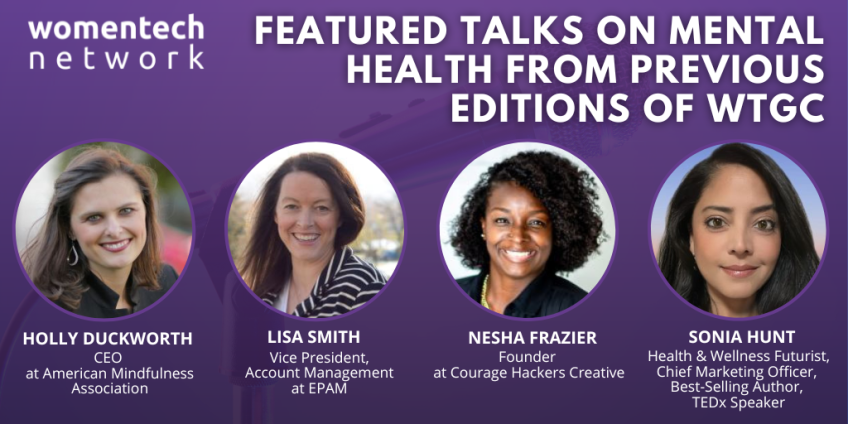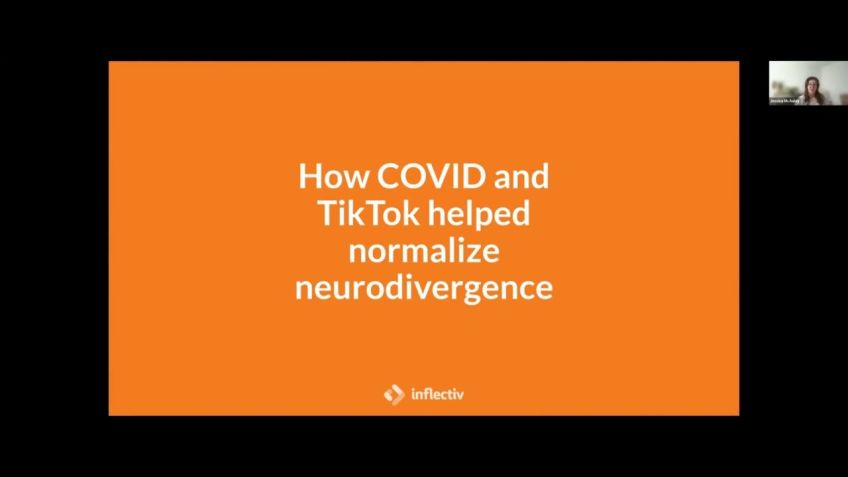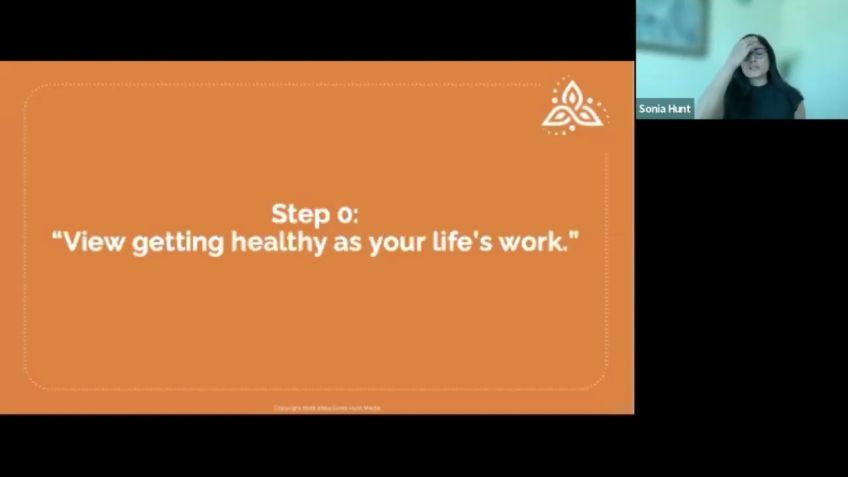Tricks and Tips for Thriving in a Changing Environment
Ewa J. Kleczyk, PhD
Senior Vice President, Analytics & Data OperationsThriving Amid Change: A Conversation with Dr. Eva Klee
Dr. Eva Klee, the Senior Vice President of Operations for Target RWE, joins us today to share valuable insights about handling change. As we traverse through uncertain times, she points out helpful strategies on how to thrive amid a changing environment.
Embrace Change Positively
Change, especially drastic ones, can bring about feelings of loss and despair. Dr. Klee emphasizes the importance of staying positive despite such challenges. Seeing the silver linings in every situation, recognizing aspects beyond our control, and adopting a positive mindset can greatly help in embracing life's uncertainties.
"Just for the record. Darling. Not all positive change feels positive in the beginning." – This quote reigns true as we accept that change, while scary and often uncomfortable at first, can open doors to new opportunities.
Maintain Social Connections
Isolation is not the solution when dealing with loss. As social beings, it is crucial we have strong and supportive relationships. Wisely choose the people who surround you and provide the sufficient support during times of change. Reach out to friends, family members, or join a support group to share experiences, gain perspective, and learn from others.
Self-care and Self-compassion
Take care of yourself. This advice often overlooked, especially by women, should not be underemphasized. Prioritize both your mental and physical health. Create a safe, non-judgmental space where you can freely express yourself while seeking help from professionals whenever necessary.
Set Realistic Goals and Be Proactive
Setting realistic goals rather than large, overwhelming objectives can prevent the feeling of defeat. Each accomplished goal should be celebrated to foster positivity and motivation. Being proactive can significantly change your outlook and help you navigate through any changing environment.
Continuous Learning and Taking Calculated Risks
Venturing out of your comfort zone, diving into new experiences, and learning different perspectives contribute to personal growth. Don't be afraid to take calculated risks, for they might lead you to better opportunities.
Seeking Professional Help
Lastly, never hesitate to seek professional help. Mental health should not be neglected. Professional guidance can offer another perspective and necessary support during troubled times.
Embrace the Journey Called Life
Change is a part of life, but remember that this too shall pass. As you navigate through the waves of changes, whether it's personal or professional, always remember to take care of yourself. Don't rush the process, and most importantly, be kind to yourself.
During these challenging times, take a step back, reassess your situation, and set realistic goals. Reach out to your support system and also seek professional help if necessary. Lastly, continually learn and take calculated risks. These strategies, as shared by Dr. Eva Klee, can potentially help make the journey through change more manageable and even fulfilling.
Change, after all, is not always a bad thing. Embrace it, and always stay positive.
Video Transcription
All right as everyone is. Um I'm, I'm assuming I can start. And uh so hello everyone. My name is Doctor Eva Klee and I'm the uh vice president, uh senior vice president of operations for a company called Target RWE.I have a pleasure being here um today and speaking to you a little bit about dealing with change and thriving with the changing environment. I think we all are in agreement that there is a lot happening right now. And um we all of us would like to make sure that we deal with it and progress as we need to uh whether it's a personal loss, a financial setback, um losing a job or even dealing with the outcomes of um pandemic. Uh We have recently experienced, I think we all can agree that handling challenges is one of the more difficult aspects, but very often uh we all need to figure out how we handle them uh throughout the change. So throughout this presentation, I'm gonna be speaking about helpful tips and tricks and to helping everyone navigate the challenge and how we can do this. There is definitely many different ways of thinking about it. But one of them is really um having a plan and knowing that certain aspects are out of, out of our control. So let's start, the first thing that I always think about is is staying positive and pressing change.
And it might seem like a very difficult aspect of that. For example, um Very often when we, when something happens to us, we all feel um somewhat down, we do not know what to do there. Um We are, we are, we are feeling tremendous amount of loss. And I think that's good. We, we all have to realize that changing or losing someone or losing a job, losing a spouse, uh going through divorce or even being sick can really impact how we are feeling. However, very often we can start looking at the positive aspects um of the change and think about it. OK, what it is that I'm that I'm happy about um what, what can make a difference for me? What is my gratitude going? What can I focus on to feel grateful? And most importantly, um what it is that we are working through when it comes to embracing change, which is really resisting and where and understanding where individuals are. So as I always think about it, it is, it is very important for us to recognize the change is never easy, but then try to identify aspects that we can um helps us embrace the change and stay positive. One of the things that I was looking at one of the quotes that struck my, uh, struck me was that I was getting preparation prepared for this presentation was, um, SCL um, quote just for the record. Darling. Not all positive change feels positive in the beginning.
And I think that's always the most important to think about when you lose a job. It might feel horrible for next week two or, or even more. But as you think about it, it opens up other doors that you might have never thought about when we thought about the pandemic. It was also something at the beginning a little bit of a shock. But then we got uh change the way how we are working became a more of a remote work environment zoom became very popular and we really made, made a change as we are thinking about
the next aspect very often
when we are going through a change, especially when it's a, a loss or um uh loss of, of, of a spouse, a child, family member, um losing a job, we tend to close down and not being open to other individuals. Human beings are
really um social and um uh group living type of um uh um uh
um individuals. So we really have to think about not isolating, but rather making ourselves and finding the relationships that are needed for us. Whether you're reaching out to a friend, family member or a support group is really important. To open up and even for a minute or even five minutes a day, talk to someone else about other aspects of your life or even share how your day went or even think about it where you are
um very often talking to an individuals can make a difference. And also hope for you gain the perspective. We
often don't think about it, but it's very important in the process of healing and navigating change regardless of what we are doing. We
as we're thinking about making a change and especially for
organizations that are going through a large change. Also connecting with
others who thrive in change is very important. You can learn from them,
some of the tips that they are leveraging. How are these things positive? You can talk to them about it and ultimately provide
yourselves and others with opportunities to learn. So I always think about not only staying positive
and embracing but building those relationships.
Maybe you wanna go for the lunch, maybe you wanna reach out to a previous employer and ask them for an advice or for
mentorship. I think these types of relationships can
only help us thrive within the during that very difficult time of our lives. Another part of that very often none of us think about
is how do we take care of ourselves or whether
we even should, especially for women and especially for women. I will underline it again. We take care of everyone when a spouse is sick when our child is sick. When a parent is sick, we always take care of ourselves when you're looking at medical records. Um, or the diagnosis process for women, women very often are not diagnosed for some of the diseases very early when men do because they usually have someone else like a, like a wife to tell them to go and, um, get, go to the doctor or being sent or being taken care of. And very, very often women don't do that. That also becomes very important as you are thinking about uh going through change and how you're gonna make better yourself. So take care of yourself. Um during times, it is even more important for us to do that to make sure that your mental health as well as your physical health doesn't get impacted. There is a lot of discussion now about mental health and I'm gonna be talking later about the importance of um seeking help of professionals. But it's also very
important to even without
that, create an environment where you can be safe where you can be not, not judged, where you can just take a moment and just be yourself, whatever that may be, whether you're gonna cry, whether you want to take a bath, whether you wanna just gain perspective, sit and read a book, take the time for yourself.
Very often individuals are recommended to take, to go um to the lake, to the beach. To take a yoga class. These are all the things that can really help us focus on other aspects and think about it where we are coming from, taking a deep breath or doing breathing exercises. As in the yoga mantra is usually presented is very important for us. I still there other. Hello. Um And um, and also thinking about it, how do you support yourself in that, in those aspects? Ma many of us don't think about it, but also don't find the time for it. And I would also encourage everyone during this time to create a space for yourself. Eat well, sleep, well exercise, go to the spa, go to sit on the, on the porch and have that coffee in the morning. Um make yourself your favorite food and just really enjoy it, taking care of, of yourself can also help
us develop
resistance and the resistance is very important in the point where you are not accepting because you're feeling healthy in or you're taking care of yourself, you're not accepting the stress coming through you. And again, think about that if you stay positive, embrace the change.
If you think about um uh creating those relationships and then taking care of yourself, you can really from that point on, start seeing a different perspective and start planning for the next aspects of the changing environment, whatever that might be. So as we are thinking, I'm going to the next slide, um Another aspect is what we women don't ever talk about is practice self compassion. And many coaches will tell you self compassion is very important. Meaning be kind to yourself. If we see someone in distress, if we know that someone lost a job or they lost a spouse, we surround them with care. We are kind to them, we bring them messages, we hug them, hug yourself. How many of us hug ourselves when we are not feeling good,
how many of
us are stepping down and, and, or, or stopping for a moment and thinking to ourselves? Well, I need to be kind to myself today. Yes, I might have woken up at 10 o'clock instead of eight, but I'm still here. I cleaned the house. I dropped off my kids. I put something in my diary. I did something be really, really kind to yourself. And I think the other component is as I'm as, as I was looking at one of the um, quotes self compassion, simply giving the same kindness to yourself that you would give to others. And I wanna really think, um, um, let us all think about it and live by it. If you would see someone who is in distress, how would you do this? Would you do it the same for yourself and really care for yourself in that way as we are thinking once we take care of yourself and say, ok, this is um, I'm taking care of myself. I I have a different perspective. I'm ready to start moving on to the next place. What do you wanna do? I see very often, um, in my, in my career, um, if I'm talking from the career point of view, I've seen a lot of individuals wanting to get everywhere very fast and have it tomorrow.
Well, sometimes it's, that's the realistic goal, but sometimes it's not very often, you also need to assess your situation. Are you gonna be a CEO? Are you gonna of a, of a company if you just started your career or are you um if you know that it's gonna, that the process of uh grieving is gonna take a little bit. Are you really gonna feel better tomorrow? So I always think about it um and recommend setting realistic goals and the realistic goal can be, I'm gonna wake up today. I'm gonna take a shower, I'm gonna search um um two jobs, I'm gonna go to an interview, I'm gonna write it in my diary. I'm, I'm gonna go and talk to my, to my, to my friends. Think about it. What are the things that move you and move you in a way that you're not gonna feel overwhelmed? The moment you start feeling overwhelmed, you might not get what you wanted, what you wanted to accomplish. So ultimately, it's gonna set you back. So setting realistic
small
goals, making it simple and easy to accomplish sometimes gets you in that mode of moving yourself forward. The most important piece also from that is um um not only being positive or embracing the change, but really celebrating successes. Many of us as women, we don't stop
and give ourselves applause. I just talked about being kind to ourselves. I just talked about taking care of
ourselves. But how many of you ever celebrate anything that we, that you are doing? We usually don't, women are very um they are not very flashy with those aspects. They are not more, more well learning or often present what they have accomplished. Why not? If you have presented at this conference, send up um uh promoted on linkedin. If you um if your child um has done something that you are very proud of promoted, talk about it and be and also if you've done something you wrote the book, you gave a great presentation, you got promoted, why not sharing with others about this? And I think that's gonna help you moving forward and then being proactive um very often individuals don't want to be proactive, especially the points when they are not feeling good setting at one goal and then going after it is going to start changing your entire thought process and give you a different perspective.
So, so think about that as being proactive is really moving you forward and moving you without anyone else, you what to do, you are moving forward um little by little and then celebrate every day. Um um Someone once told me every day at the end of the day, talk about five accomplishments. You did talk it out aloud and talk to yourself and really celebrate it even, even in front of the mirror. So, you know, that you have accomplished a lot.
Um The one
aspect that we talk a lot about in a professional environment, but maybe we don't talk in a, in a personal is the, is the continuous learning and taking calculated risks. And those risks can be whether it's professional, whether is uh personal, maybe going on the on the date after you haven't been on one for a long time or maybe thinking about it. Where do I want to invest my money or how do I prepare myself for the next level of my, for my retirement or even very um uh not knowing whether I should take the next position because it's a small company. However, as I'm thinking about it, maybe I will be the lead or the leader of that organization in the past, in the, in the future because I can do this really identifying, analyzing learning, doing the research and then taking that, that, that risk, that sometimes that risk shouldn't be big, right?
I mean, or can be big depending on what you wanna achieve. But that also helps us to prepare for it, to learn for it. And then think about it, how do we, how do we proceed forward learning. Learning is not only in a professional setting, although many young people think when they leave college that they don't have to learn anymore, learning is every single day. But it's also thinking about how do I engage with someone that I've never would have talked about? The older we get, do we grow become we know that there are many different individuals, they have many different interests. How do I talk to someone that I have never spoken to? How do I engage with a group that might have never thought about it? Do I go to the theater to see this play that I heard of? But never thought about that. I, that I would ever do something like that. When we learn, we open up our space and get a different perspective. We are becoming non judgmental and ultimately allow others to come into our lives and, and, and enhance it that also then allows us to get the perspective on the calculated risks that we may wanna do. So as I'm, as I'm finishing up here this presentation and, and I, and I was trying to think we all, especially during the pandemic, realized that seeking professional help is a must.
Mental health has never been talked a lot about, but it needs to be um when we are going through tragic situations. And I, as I'm, as I was talking very positively and I was trying to attach different aspects. I also realized that personal loss very often um or even losing a job or any or not having an accident or having other aspects of your life that is changing without your control can really put you in a place where it's very difficult to come out from. And each of us sometimes know or sometimes are told by others that we need to seek, seek the help in the environment we are living in um mental health or seeking help or asking for help is really very often uh not looked very well at working in a healthcare um industry. It really strikes me that sometimes many individuals for seeking help are being ostracized even more. And ultimately getting a bad uh feedback from that we all if we feel we need seeking uh if we need to seek professional help, we should do that. There is nothing to be afraid of. There's nothing to be worried about a professional can help you professional can help you give you another perspective, professional can help you with giving you the treatment you are required.
But as I was reading about
young people, talking about mental health, one thing that one person uh young men said struck me, I go to the therapy not because I have to anymore but because I wanna get someone else's perspective and I don't wanna be judged. And I think if we think of mental health and treatment and going to therapy and seeking help in that manner. I think we can really get the, to get the time for ourselves to uh cure for, for ourselves, but also have someone else to help us and it be nonjudgmental in that manner. So I would highly recommend that you are thinking about all of the different steps that you need to do. If there is a point that you need to talk about seeking professional help, please do that because I think that's very important to reach out to a therapist, to a counselor, to a mental health professional or your doctor, your primary care physician and, and, and ask for the help that you might need.
So as I'm wrapping up and thinking uh where we are headed, environment is changing. Um we are hearing more and more inflation. Some individuals are struggling with meeting ends and I'm sure that's putting a lot of stress on single mothers, single parents, single fathers, um grandparents, taking care of um their grandchildren um dealing with loss potentially of your own Children as they provide support for those of you who might have lost uh uh lost a job or will be or might lose a job in the future.
They, you're gonna be going to the same types of um uh thoughts as well. Think about it. That change was it's always gonna happen, but also give yourself the kindness, take care of yourself, start small, waking up sometimes and taking a shower. It's a, it's a good enough and talking to others will always help but surround yourself with individuals who can really embrace you and give you the platform where you can thrive and be able to non judgmentally talk about those aspects. And then finding um as you're staying positive and, and and connected know that you are not the only one, many of us are going through different aspects of our lives. This is never, this is always something that's gonna happen, but be conscious on the uh to yourself every single day and truly embrace um that you have the right to feel a certain way that you have to um place to, to work it through. And also know that this is only temporary, it's only temporary and it's gonna change in the um in the next few days. So I truly appreciate the time. I know I'm, I'm, I'm at time, but I truly appreciate you all joining and I hope it was a little bit helpful and um to hear and sh uh hear my perspective and giving some of my thoughts and, and guidance that I have used in the past.
But I wish you all the best during the rest of the conference. Enjoy, learn, take calculated risks, stay positive and embrace the change. So, thank you very much.






